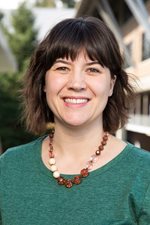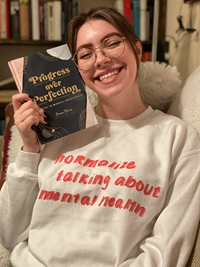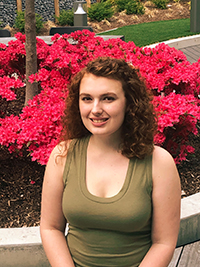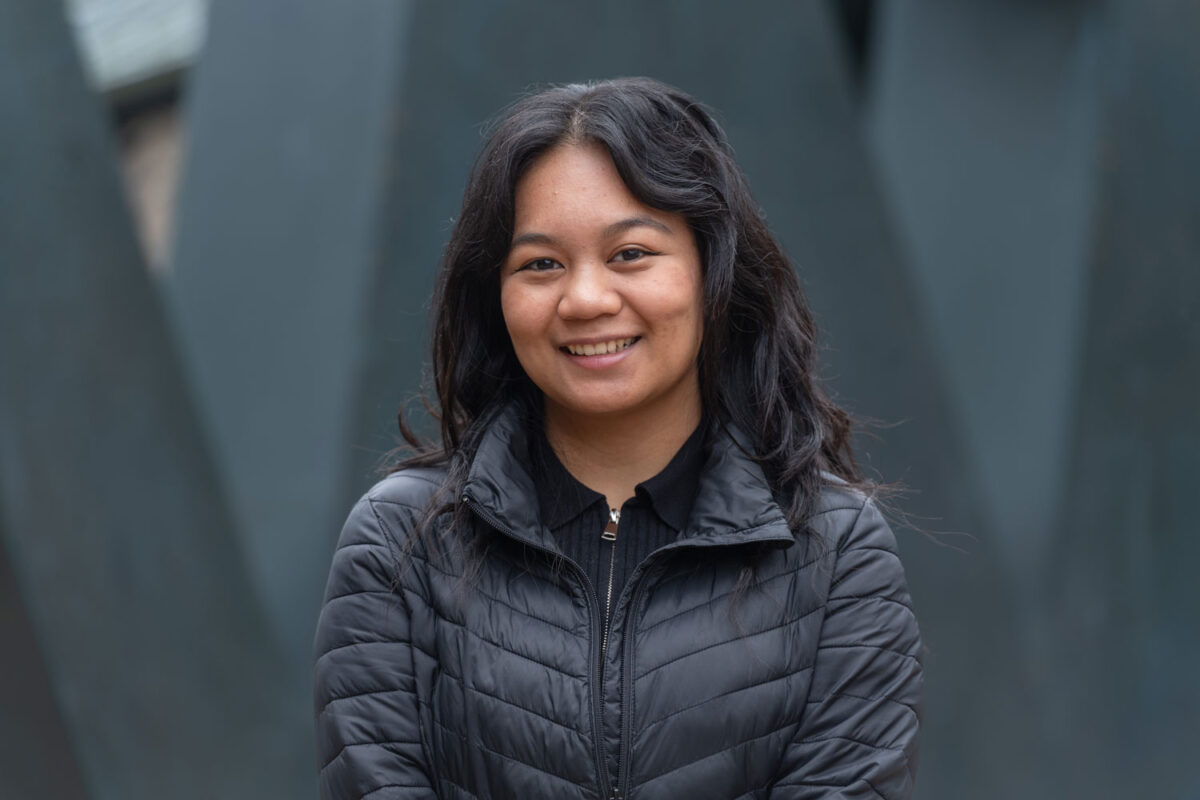
There is a mental health crisis on college campuses across the United States. Data shows that students commonly struggle with managing stress and feelings of exhaustion. Many also struggle with overwhelming feelings of anxiety, depression, homesickness and loneliness.
The University of Washington Bothell is actively working to rewrite this script. To ensure students, faculty and staff are aware of the myriad resources available to them on campus, staff in the Health & Wellness Resource Center host the annual Wellness Fest.
Sponsored by Evergreen Health, the campuswide event takes place each spring quarter and brings together students, staff, faculty and community partners to promote mental health and student well-being at UW Bothell and Cascadia College.
“One of our primary goals is to decrease stigma and normalize help-seeking around mental health, through a lens of cultural humility,” said Jo Blue, HaWRC manager and lead organizer of the event. “We provide students with tools and tips for improving mental health as well as knowledge about on-campus and community wellness resources.”
Care and connection

The Wellness Fest will take place at the Activities & Recreation Center on Wednesday, May 18, from 11 a.m. to 4 p.m. and will include a wide assortment of hands-on activities and live events led by students and faculty.
From the School of Nursing & Health Studies, Dr. Hoa Appel, lecturer, and Dr. Kosuke Niitsu, assistant professor, will be overseeing a rock painting and origami station. “Folks with any mental illness need to have a positive distraction — something that is soothing and can allow them to focus more on themselves and being present,” Appel said. “Art is an excellent venue for that.”
Niitsu also sees art as a way of bringing community together. “It’s a great way to create a sense of social connection,” he said, “and to spread knowledge and healing in a way that is fun and relevant.”
In addition to Appel and Niitsu’s art therapy booth, there will be other booths with information about sexual and reproductive health, violence prevention and advocacy, substance abuse, financial wellness and physical health. There also will be a panel of students speaking on their experiences around well-being.
One of these students is Sam Locke, a senior in the School of Interdisciplinary Arts & Sciences majoring both in Global Studies and in Society, Ethics & Human Behavior, with a minor in Gender, Women & Sexuality Studies. “I think it’s really important to be honest about mental and physical health on college campuses,” Locke said. “So often, there’s a mentality of ‘grind culture,’ which expects students, staff and faculty to push themselves, without time being given toward understanding the circumstances and lived experiences they come in with.
“When we are open about stigma and grind culture, we create space for people to receive and pursue the supports they need, as well as create a shift in attitude toward supporting the person as a whole,” she said. “That’s why I participate: I want to be able to use my identity and experiences in a way that supports an open dialogue and a cultural shift that benefits people holistically in the university setting.”
You are not alone

Also participating in the student panel is Kira Lemke, a senior in STEM majoring in Biology, with a minor in Neuroscience, who was diagnosed with obsessive compulsive disorder when she was in high school. “I was basically told that my life was over if I had even had one to begin with,” she said.
“I heard a version of that from my psychiatrist, my therapist and everyone in the support group. I was fortunate to have a family who challenged that narrative but at the cost that my relatives didn’t believe I had OCD at all because I was so high-functioning. Since then,” she said, “when I’ve shared with people that I have OCD, they mostly haven’t believed me because I don’t fit their image of what it should look like.”
In her first year, she mentioned in a class discussion that she has OCD, and after class a student came up to her and told her that she was brave to share her experience and that it meant a lot to hear her talk about it.
“The student also had OCD and had really been struggling with it,” Lemke said. “It was really sweet and touching to hear. It also caused me to look back at the last few years. If I’d been a different kind of person, someone who did care about what other people told me I was capable of or generally thought of me, my life would have been a nightmare.”
Since then, Lemke has been intentional about speaking up, especially about mental health. “I hope that events like this, and the smaller conversations people have in class discussions and with friends, challenge preconceived notions about mental illness and create a culture where people aren’t scared to share this part of themselves,” she said.
Stronger together
For Blue, Wellness Fest is about making sure students are aware of and feel the support of faculty and staff on campus.
“There are so many people at the University who are invested in their health and well-being — and who want to support them, in whatever way they can,” she said.
“My hope is that students take advantage of the resources and, at the very least, know that they are cared for, important and valued members of our community.”



